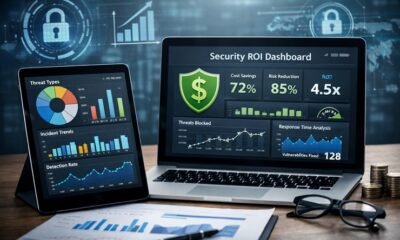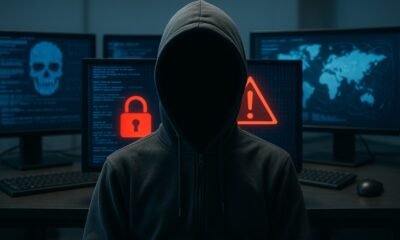Tech
What Makes Security Functions Vital for Business Continuity Planning

Business continuity planning acts as a safeguard for organizations facing unexpected disruptions. It involves anticipating potential threats, preparing for operational interruptions, and maintaining stability during crises. Without robust security functions, this planning remains incomplete. Security protects not only physical and digital assets but also the reputation and trust that sustain an enterprise.
From cyber incidents and data breaches to natural disasters and insider threats, the role of security extends far beyond compliance. It represents a structured defense mechanism that keeps business processes running smoothly, even when unforeseen events occur.
Integrating Cybersecurity into Business Continuity
Cybersecurity stands at the heart of modern business continuity planning. Digital systems handle critical operations, from financial management to customer engagement. When these systems face threats, the entire business ecosystem is at risk.
Companies striving for seamless connectivity and protection are increasingly turning to SSE. This model safeguards data transfers and user identities across remote and hybrid work environments. Its relevance extends beyond protection, influencing how companies maintain productivity during disruptions. Many organizations have discovered that how SSE boosts secure user experience online reflects the very essence of a balanced digital strategy, blending convenience with protection. Through such frameworks, businesses establish security measures that remain functional under stress.
Protecting Data Integrity and Accessibility
Data serves as the foundation of any enterprise. When data becomes corrupted, inaccessible, or stolen, operational continuity faces severe strain. Security functions work to preserve the integrity and accessibility of information systems, forming the basis for decision-making and service delivery. Encryption, access control, and continuous monitoring provide stability to data management.
During a disruption, data protection systems act as a bridge between chaos and control. Backups and redundancy strategies limit the impact of server outages or ransomware incidents. When teams can access accurate data securely, recovery efforts move faster and more efficiently. Security functions also promote transparency by maintaining verifiable records of data handling, which aids compliance with regulations and reassures stakeholders.
Safeguarding Communication and Collaboration
During operational crises, communication channels become the lifeline of coordination. Employees, clients, and partners rely on secure communication systems to share updates, transfer documents, and plan responses. Security functions ensure that these exchanges remain confidential and tamper-proof.
Encrypted messaging, multi-factor authentication, and secure cloud collaboration tools help maintain trust across dispersed teams. In moments of disruption, such as system outages or breaches, the reliability of secure communication determines the speed and accuracy of the response. The right safeguards prevent misinformation, data leaks, and unauthorized access to sensitive discussions.
Aligning Physical and Digital Security

Business continuity planning often focuses on digital resilience, but physical security carries equal significance. Physical breaches can lead to equipment damage, unauthorized access to facilities, or direct theft of sensitive materials. Coordinating physical and digital security strategies creates a comprehensive shield against disruptions.
Surveillance systems, access control, and disaster-resistant infrastructure work alongside cybersecurity measures. Together, they provide a layered defense that supports operational consistency. When physical assets and digital systems are both secure, the likelihood of cascading failures diminishes. A power outage caused by a security breach in a data center can trigger downtime across departments if not managed through integrated controls.
Building an Adaptive Response Framework
No plan can anticipate every possible disruption, but an adaptive response framework allows organizations to react quickly and intelligently. Security functions contribute by providing early warning systems, real-time analytics, and structured response protocols. When threats emerge, these functions activate predefined measures that guide teams through containment, investigation, and recovery.
Incident response plans, supported by automated detection tools, help isolate affected systems and prevent escalation. Regular security audits refine these strategies by identifying gaps and improving readiness. The adaptability of such frameworks defines how effectively a company can restore stability after an attack or natural disaster.
Supporting Long-Term Trust and Compliance
Beyond immediate crisis management, security functions sustain long-term trust among stakeholders. Customers, investors, and partners expect reliability and protection from the organizations they engage with. Breaches or prolonged outages erode confidence and can damage a brand’s reputation permanently.
Compliance with regulations such as GDPR, HIPAA, or ISO 27001 strengthens the connection between security and continuity. Meeting these standards demonstrates commitment to accountability and ethical responsibility. By embedding security into daily operations, organizations create a culture where resilience becomes second nature.
Trust grows when users see consistent performance, even in adverse conditions. The presence of well-structured security measures signals that the business values transparency and reliability, which can distinguish it from competitors in crowded markets.
When security aligns with continuity objectives, the organization becomes more than reactive; it becomes resilient. Business continuity depends on foresight, preparation, and reliable systems that sustain trust during unpredictable times. Through consistent investment in security measures, enterprises not only protect their assets but also preserve the confidence of everyone who depends on them.
-

 Motivation5 years ago
Motivation5 years ago4 Fun New Hobbies To Try This Year
-

 Quotes3 years ago
Quotes3 years ago53 Motivational Gym Quotes to Fuel Your Workout
-

 Quotes10 years ago
Quotes10 years ago50 Most Powerful Quotes Ever Spoken
-

 Quotes2 months ago
Quotes2 months ago100 Motivational Quotes to Inspire You in 2026
-

 Quotes2 years ago
Quotes2 years ago43 Inspirational Quotes About Thoughts
-

 Quotes3 years ago
Quotes3 years ago105 Motivational Quotes by Famous People
-

 Quotes8 months ago
Quotes8 months ago100 Motivational Quotes to Start Your Day with Positivity
-

 Travel1 year ago
Travel1 year agoWhy You Should Travel More: The Many Benefits of Seeing the World































